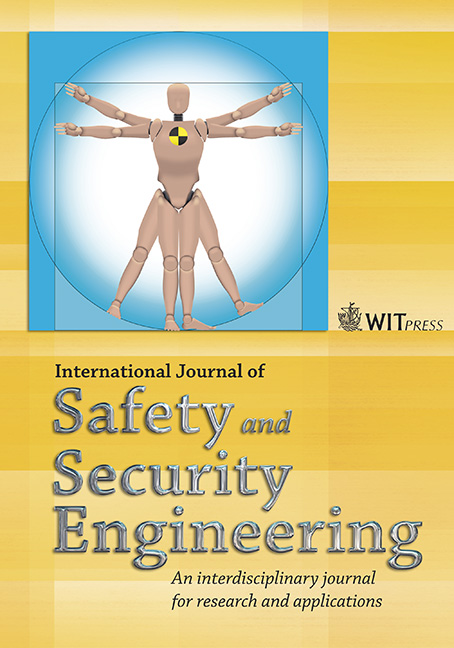Environmental forensics: where techniques and technologies enforce safety and security programs
Price
Free (open access)
Volume
Volume 6 (2016), Issue 4
Pages
10
Page Range
709 - 719
Paper DOI
10.2495/SAFE-V6-N4-709-719
Copyright
WIT Press
Author(s)
M. LEGA & R. TETA
Abstract
Safety and security engineering involve several and complex multidisciplinary activities aimed to preserve people and the environment from hazards and risks. These concepts that were born as “umbrella” terms for the laws, rules; process design is generally applied only for workplaces or related to the employees; indeed, the scenario of related applications is only limited by the typical needs of the specific context. Recently, new methods and applications for detecting, evaluating, and tracking signs of environmental contamination are validating the effectiveness of safety and security engineering tools also in the environmental field. As in a workplace an engineer is called to analyze a complex scenario (e.g. to evaluate a risk, to assess a real danger and, therefore, look for causes to define the dynamics and find a solution), in the same way the environmental forensic scientist has to examine scenarios and actors to define the relationships to reveal source, path and target; in both the same techniques and technologies used in the analyses play a key role. This paper introduces a multidisciplinary strategy that bridges different approaches incorporating remote/proximal sensing applications where techniques and technologies enforce safety and security programs. A part of Campania coast, close to Salerno city in southwestern Italy, was chosen as a test bed of our strategy. All the activities were performed supporting the environmental investigations directed by Salerno Prosecutor Office and also cooperating with Italian police and several Government bodies. This paper provides an example where law enforcement and university research teams collaborate to develop enhanced environmental protection methods.
Keywords
aerial infrared thermography, bioindication, eco crimes, environmental forensics, environmental violations, GIS, law enforcement, public health, remote sensing.




